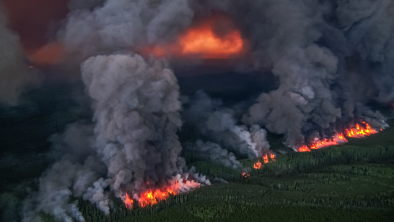Proposal to revive Taseko mine looms as test for B.C. government
Monday, January 30, 2017
Globe and Mail

The Tsilhqot’in First Nation played host to federal Indigenous and Northern Affairs Minister Carolyn Bennett on Friday, wrapping up her visit to their territory in B.C.’s Interior with a signing ceremony committing the two governments to reconciliation. It’s a well-timed pact, as both sides will be in court together on Monday, fighting the latest effort by Taseko Mines Ltd. to revive its proposed $1.5-billion New Prosperity open-pit gold and copper mine project.
The company is seeking to overturn Ottawa’s rejection of the project, and it is not clear where the B.C. government will be standing in this battle. It cannot, however, avoid getting drawn into the fray.
The province has already given the proposed mine, located 125 kilometres southwest of Williams Lake, a green light through its own regulatory process. B.C. Mines Minister Bill Bennett has been an outspoken champion for New Prosperity, and his ministry is currently considering a permit application that would allow Taseko to begin exploratory drilling for the mine.
At the same time, the province has been engaged in a government-wide exercise that seeks to embrace reconciliation with the Tsilhqot’in Nation.
B.C. recognizes that the Tsilhqot’in Nation has established aboriginal rights in the project area around Fish Lake, where the mine would be located. And less than one year ago, the B.C. government signed what was billed as a historic accord that bound it to “a shared vision” to seek “a comprehensive and lasting reconciliation between the nation and the province.”
That shared vision doesn’t seem to square with giving Taseko a multiyear tenure to set up a work camp for 50 people, excavate test pits, drill holes and wells, and clear roads.
In a Jan. 23 letter to Premier Christy Clark, Chief Russell Myers-Ross of the Yunesit’in, one of the six Tsilhqot’in communities, warned that granting the drilling permit will undo all of B.C.’s reconciliation commitments. Fish Lake – Teztan Biny to the Tsilhqot’in – is a key area of spirituality and cultural significance to his people, he noted, and the province needs to accept that the project is dead.
“We have kindly asked you not to accelerate the conflict,” he wrote. “The government of British Columbia has failed the Tsilhqot’in people over and over again in its blind support, at all costs, for this disastrous project. This latest decision will speak volumes.”
The intense interest in reconciliation from both the federal and provincial government is driven by the 2014 Supreme Court of Canada declaration that the Tsilhqot’in have aboriginal title over approximately 1,750 square kilometres of land. It was the first time in Canadian history that aboriginal title was recognized and it has forced governments and industry to seek new relationships with indigenous communities where aboriginal title and resource development meet.
In its application for judicial review, Taseko argues the federal environmental review panel made “a blatant error” in the evidence it considered, and it argues the process was unfair because the company was not given a fair opportunity to challenge the evidence. The B.C. Mines Minister went to Ottawa to lobby on the company’s behalf but to no avail: The project has been rejected – twice – by the federal government.
If B.C. chooses to stand with Taseko to push Ottawa to overturn its decision, however, it will expose once again persistent questions about its own environmental-assessment process, which failed to see what the federal review found. Ottawa’s assessment concluded that the mine would likely result in significant adverse environmental effects on water quality, fish and fish habitat, and on Tsilhqot’in current use of lands and resources for traditional purposes, Tsilhqot’in cultural heritage and Tsilhqot’in archeological and historic sites.
Chief Roger William of the Xeni Gwet’in, the Tsilhqot’in leader who led the aboriginal-title case all the way to the Supreme Court, said in an interview it is time for B.C. to say “no” to this project.
“B.C. needs to cut this dead horse down,” he said. “To anyone in Canada: Here is a place that is still alive. It has everything you need to live there year-round. We have aboriginal title and if a company can run roughshod over that, you should be concerned, Canadians.”
The B.C. Liberal government would love to see a new mine built in the region where its jobs plan has sputtered, and this project is expected to provide 550 direct jobs, more than 1,200 spinoff job, and add $340-million per year to the province’s economy. But choosing sides in this dispute will test its genuine commitment to reconciliation.


